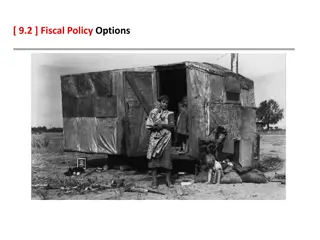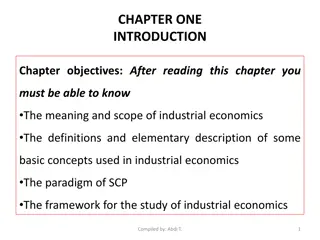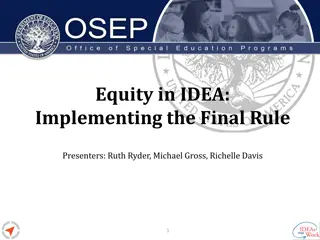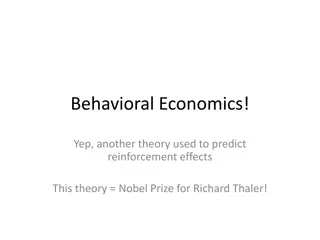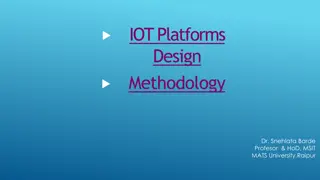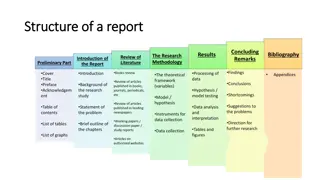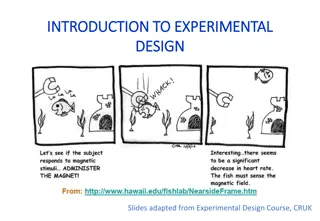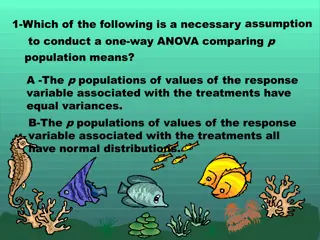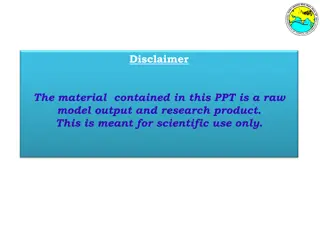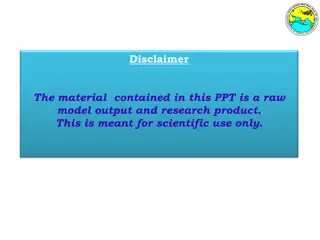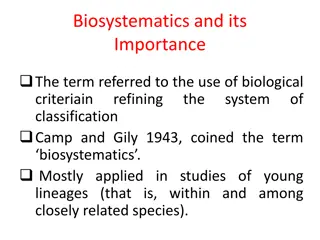Key Components of Experimental Economics Methodology
Experimental economics methodology emphasizes the importance of clear objectives, controlled environments, honest instructions, and providing subjects with monetary incentives. The experimenter must have a clear objective in mind, ensure tasks are clearly stated for subjects, and analyze data accurately. Subjects should be paid proportionally to the theory being tested and should be given clear, honest instructions for the experiment to be successful.
Download Presentation

Please find below an Image/Link to download the presentation.
The content on the website is provided AS IS for your information and personal use only. It may not be sold, licensed, or shared on other websites without obtaining consent from the author. Download presentation by click this link. If you encounter any issues during the download, it is possible that the publisher has removed the file from their server.
E N D
Presentation Transcript
The Methodology of Experimental Economics John Hey
The main components of the methodology CONTROL The experimenter must control the environment. The objective of the experiment must be clear in the experimenter s mind. The task facing the subjects must be clearly stated. The Instructions must be clear and honest. Subjects must be given a (monetary) incentive related to their execution of the task. There should be no deception. The software must be clear and bug-proof. The experiment should be well-calibrated (parameters chosen with care). Payment should be as quick as possible. The experimenter should know in advance how she/he will analyse the data.
The objective of the experiment must be clear in the experimenter s mind It is crucial that the experimenter understands completely what she/he is trying to achieve with the experiment. Is it just to describe behaviour? Is it just testing some comparative static prediction of some theory? Or is it fitting a theory to some experimental data? Make sure that the software records the key variables of interest (not just decisions but all clicks). The experimenter should know in advance what kind of statistical analysis she/he is going to do on the data. The parameters should be chosen so that significance can be achieved.
The task facing the subjects must be clearly stated The subjects in the experiment will be asked to take some decisions. It is crucial that these are clearly stated and their influence on the subject s payment is clear. This point is related to the next point.
The Instructions must be clear and honest Instructions are central to a successful experiment. In the past, we just gave subjects written instructions and asked them to read them. Now we are increasingly making Panopto recordings of the Instructions and playing them on a big screen. The instructions must be clear, well written and honest. All should be explained.
Subjects must be given a (monetary) incentive related to their execution of the task. Usually the theory being tested/investigated envisages the decision-maker maximising something (profit, surplus, ) It is crucial that subjects are paid proportionally to the something . Then, assuming that they want to make as much money from the experiment as possible, they should behave as in the theory. (We frequently denominate payment in ECUs (Experimental Currency Units) and tell them the exchange rate between ECUs and money).
There should be no deception This is a point of friction between experimental economists and experimental psychologists. Some times, the latter find it central to the experiment that some deception is used. The former do not like this, as once the subjects know that they are being deceived on one point, they will suspect that they are being deceived on others: control has been lost.
The software must be clear and bug- proof If one is going to use software (Z-tree, O-tree, Python, Visual Studio) to run the experiment, it should be thoroughly tested so that it does not crash. Road-testing the software is crucial.
The experiment should be well-calibrated (parameters chosen with care) This is an important point that is often neglected. The parameters chosen will determine what the subjects can do, and therefore will determine the validity of the data analysis. Later, I will give an example of a badly-calibrated experiment, for which we could not do any serious data analysis.
Payment should be as quick as possible Before the pandemic, we used to pay subjects in cash immediately after the experiment. After the pandemic we can no longer do this. Our Finance Office now pays with bank transfers which are slow.
The experimenter should know in advance how she/he will analyse the data This is crucial as it should determine the whole design of the experiment. I would strongly recommend doing some simulations to see if one can extract what one wants from the data.
The end The key word is CONTROL. The whole point of carrying out experiments is to get some clear data which is not muddied by noise (irrelevant factors, over which one has no control). The experimenter controls the environment as much as possible. Enjoy!



